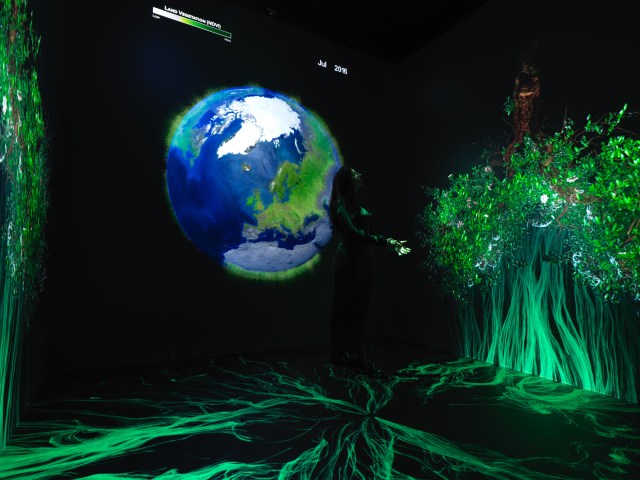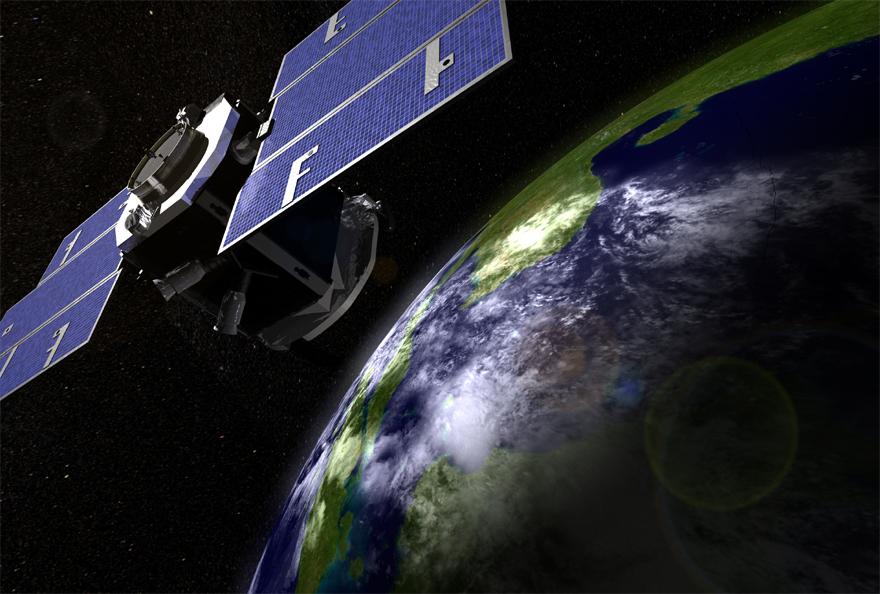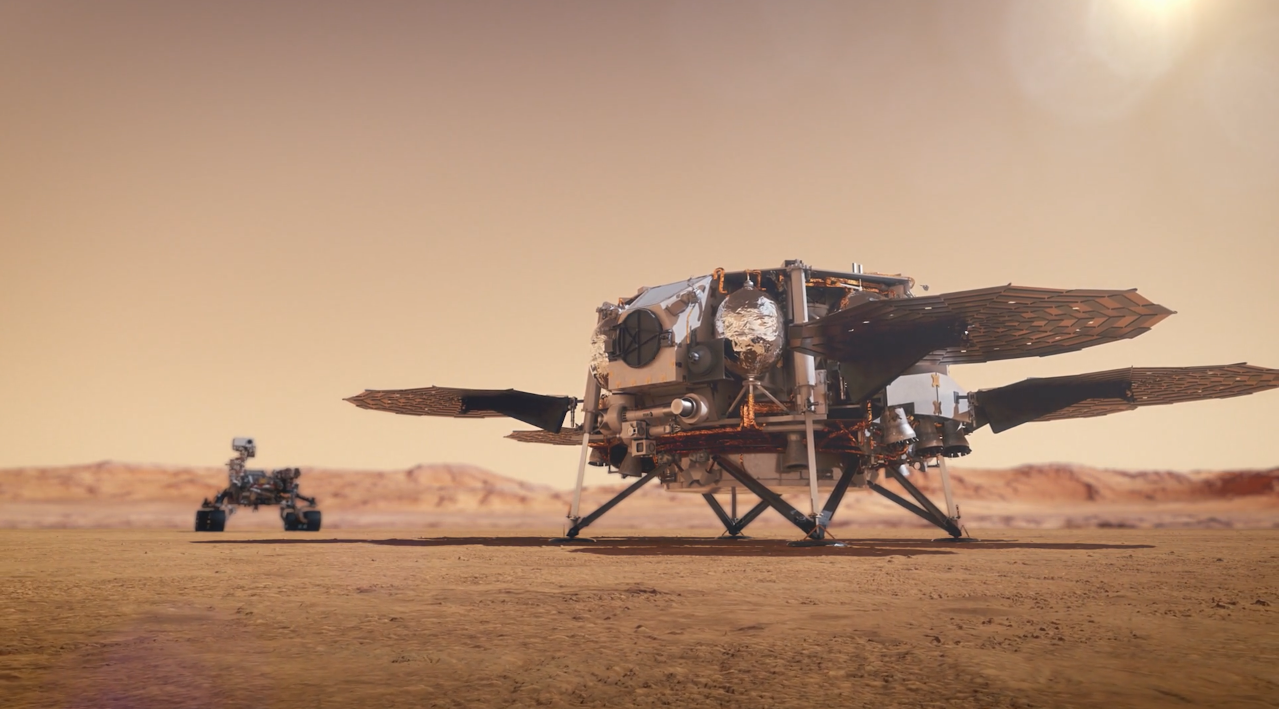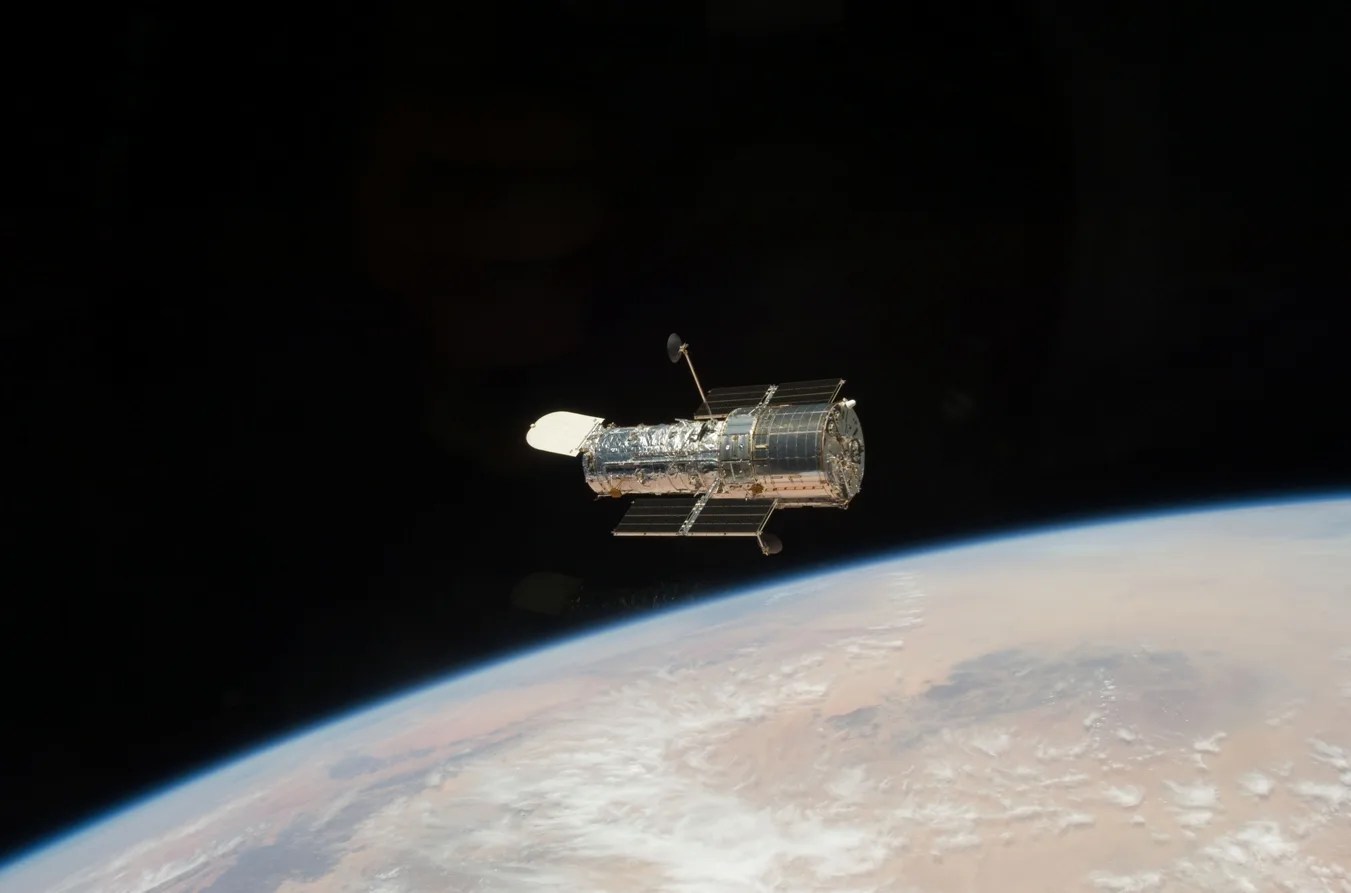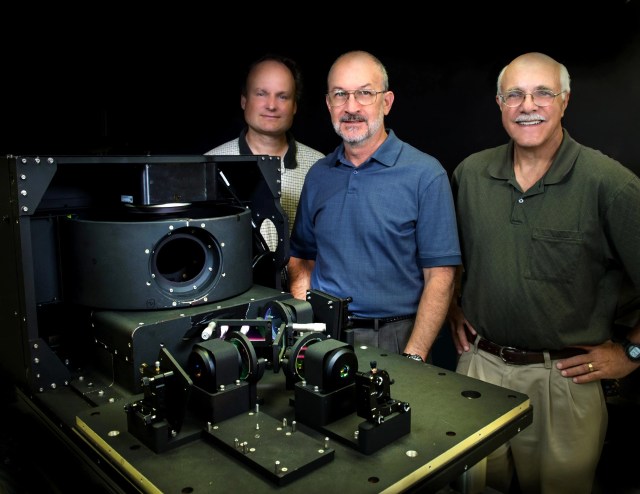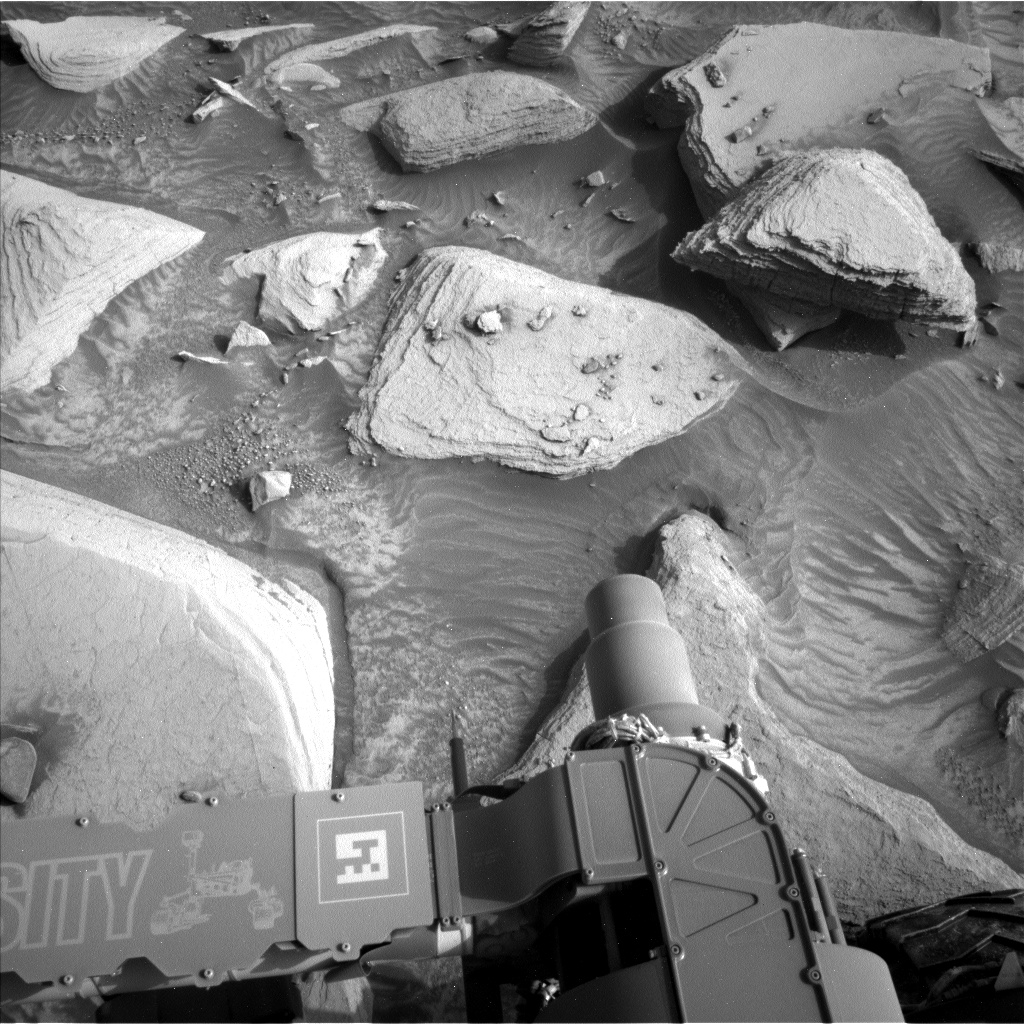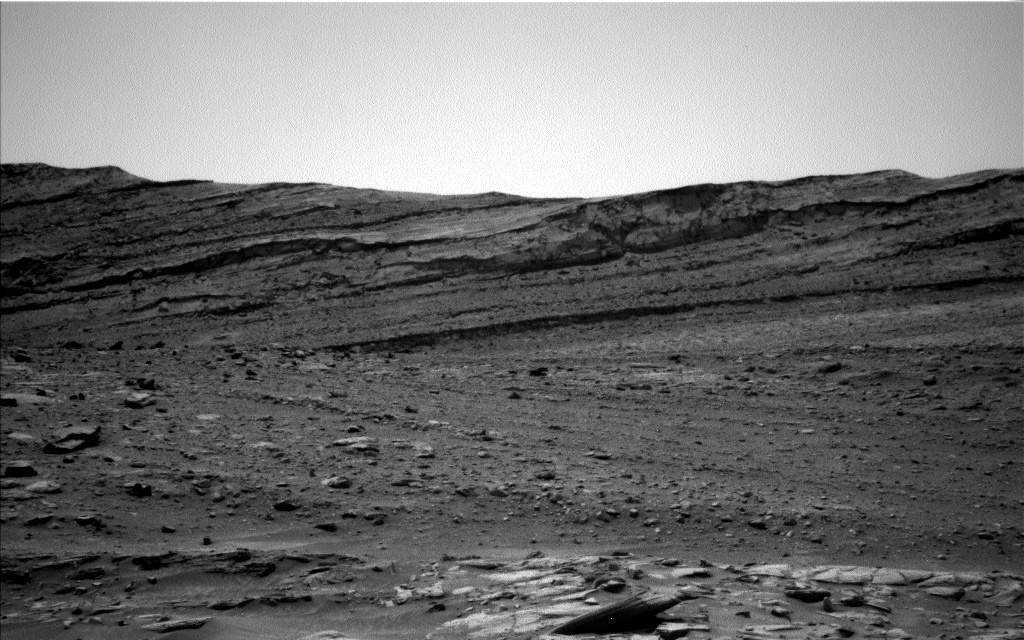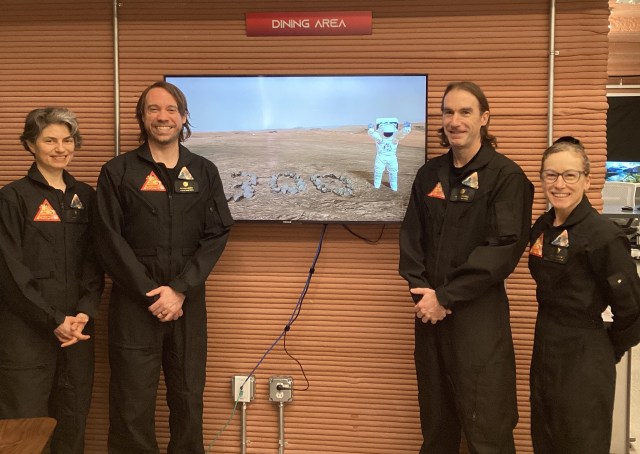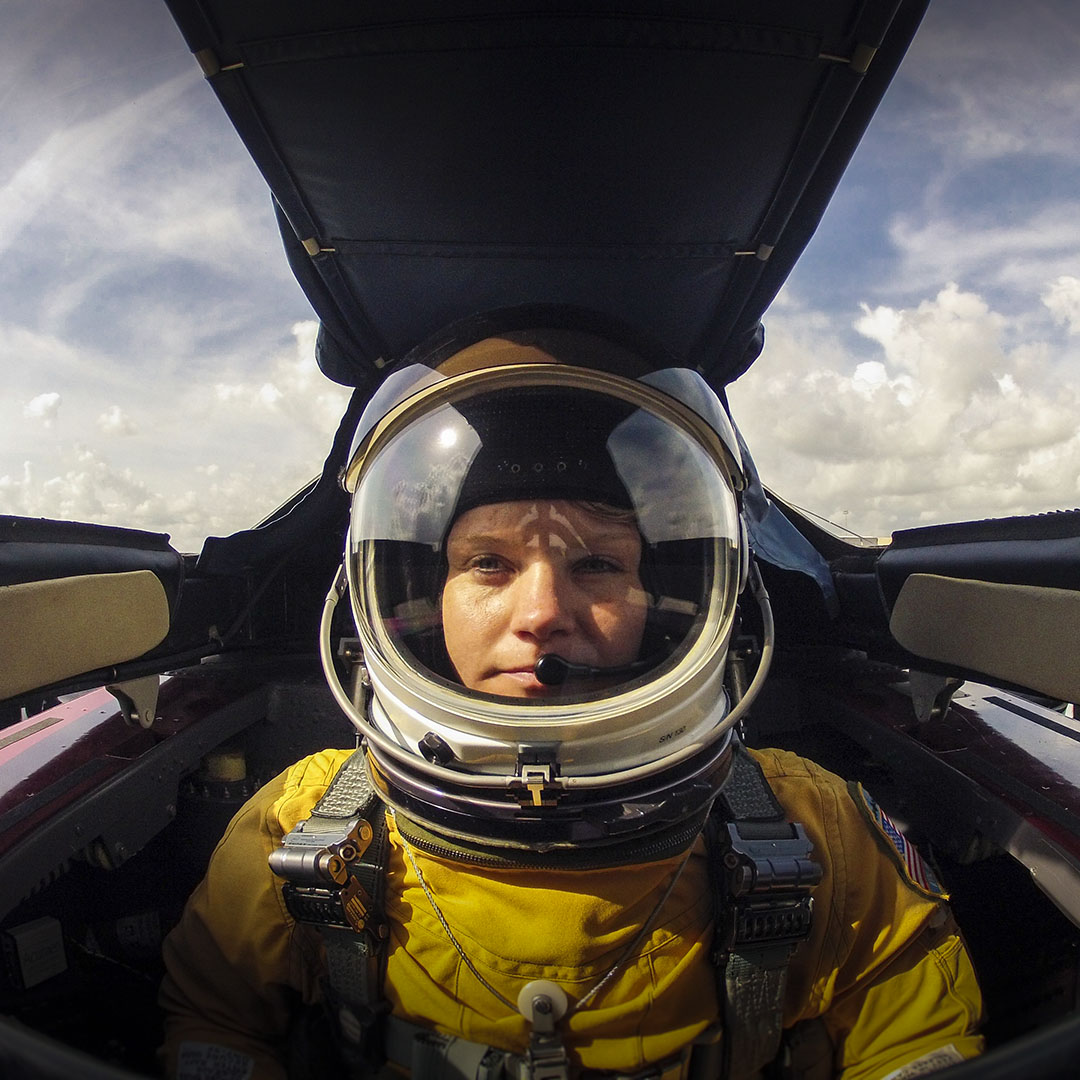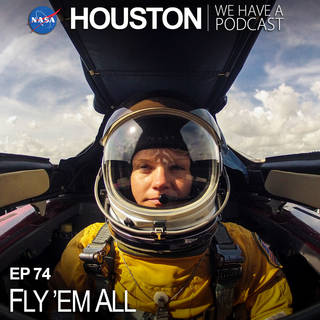
“Houston We Have a Podcast” is the official podcast of the NASA Johnson Space Center, the home of human spaceflight, stationed in Houston, Texas. We bring space right to you! On this podcast, you’ll learn from some of the brightest minds of America’s space agency as they discuss topics in engineering, science, technology and more. You’ll hear firsthand from astronauts what it’s like to launch atop a rocket, live in space and re-enter the Earth’s atmosphere. And you’ll listen in to the more human side of space as our guests tell stories of behind-the-scenes moments never heard before.
NASA Astronaut Anne McClain discusses her journey to space, from her education, her time in the Army as an aviator, and her training to become an astronaut. This episode was recorded on October 4th, 2018
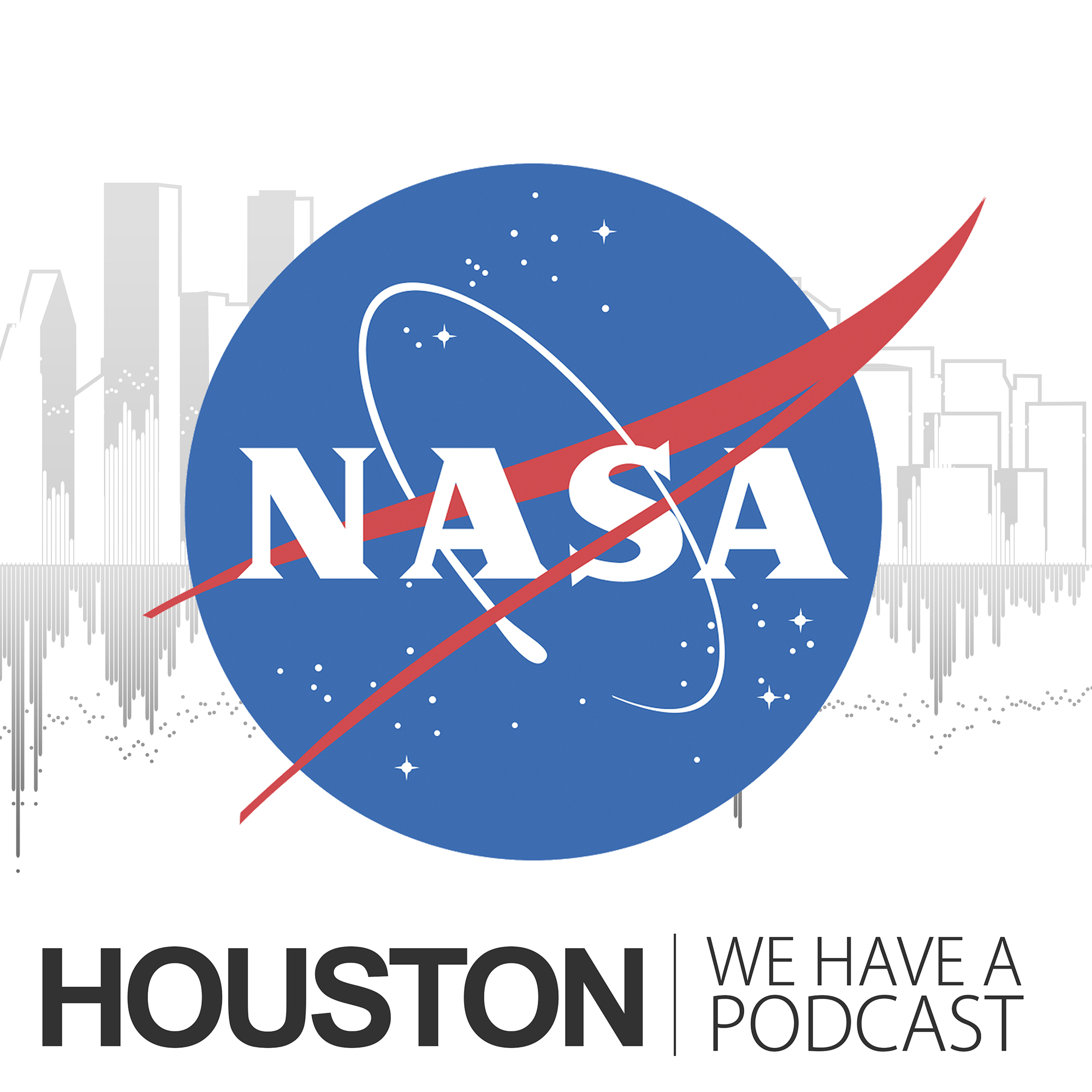
Transcript
Gary Jordan (Host): Houston, we have a podcast. Welcome to the official podcast of the NASA Johnson Space Center, Episode 74, Fly ‘Em All. I’m Gary Jordan and I’ll be your host today. So, if you’re new to the show, we bring in NASA experts to talk about all the different parts about our space agency. Sometimes we get lucky enough to bring in astronauts and talk about their story. So, today, we’re talking with Anne McClain, she’s a U.S. astronaut and an Army colonel and she recently launched to the International Space Station this December 2018 for her very first spaceflight. We talked about her education, studying mechanical and aeronautical engineering, her time in the United States Army, flying 20 different rotary and fixed-wing aircraft, and her training and expectations before her first trip to space. So, with no further delay, let’s jump right ahead to our talk with Colonel Anne McClain. Enjoy.
[ Music ]
Host: Anne, thank you so much for coming on the podcast today.
Anne McClain: Oh, thank you for having me.
Host: Well, I kind of wanted to start with your life because Spokane, Washington, I actually don’t know much about it. What was it like growing up there?
Anne McClain: Spokane, Washington is nestled in eastern Washington, we like to think it’s the best-kept secret, but I think the secret’s getting out. It’s a beautiful city, very outdoorsy, all four seasons. So, in the summer, we were always out playing in the parks and the pools, and in the winter, we were always out skiing and sledding, and it was just a great place to grow up.
Host: So, did you—were you more of an outdoorsy kind of person then?
Anne McClain: We were always outdoors. It was a—yes, always outdoors, and it was just pick an activity and go.
Host: Okay, now rugby was one of your top activities that I saw. Were you—do you start young with that or did you kind of get—I don’t know forced into it?
Anne McClain: So, I—both. I started—I got forced into it at a young age. So, I was about 18-years-old and I was walking around the campus of Gonzaga University in Spokane and I saw a group of people playing a very interesting-looking sport. And I kind of approached and asked what it was about and the next thing I knew, I was starting a rugby match the next day, and that started off my career, and I had no idea what I was doing.
Host: Well, there you go. Did you want to do rugby full-time or did you have something else that kind of sparked at a young age?
Anne McClain: So, I played rugby throughout college. So, shortly thereafter, I went off to West Point and we didn’t have a team there at that time and so, you know, when we had time off, I would go find tournaments and just kind of play pick-up. But I really got into it seriously when I was in graduate school. After I graduated West Point, I went to England and in England, rugby is much more common and a lot more competitive. And so, I was fortunate to play at a very high level and that’s where I started playing a lot of rugby training for it specifically and then at the end of that two years, I was—actually in the middle, I was fortunate enough to be selected for the U.S. National Team.
Host: Oh, very awesome. But you went to West Point first, so I’m guessing you went there for—I’m—it says engineering, right? So, you were—when did you start getting interested in engineering?
Anne McClain: That’s correct. So, I was interested in engineering, I knew I was going to do something in math and engineering from a young age.
Host: Oh, okay.
Anne McClain: And I’ve always been drawn toward maths and sciences, it’s been not only interesting, but I’m a lot better at it. I’m not the best essay writer. So—and I remember when I went, one of my teachers said, you know, mathematics is the study of what is and engineering is the study of what could be.
Host: Oh I like that
Anne McClain: And I thought that was really neat and it kind of inspired me to go, hey, I could actually contribute to something and create something new but still use, you know, math and hard science as a basis.
Host: Were you were tinkerer then? Did you play with a lot of stuff [inaudible]?
Anne McClain: A little bit, a little bit. I was—I would say I started out more theoretical. You know, I really enjoyed equations. I’m a huge nerd. In fact, in sixth grade, I asked—for my birthday, I asked every single one of my friends for a calculator and I got like six or seven calculators for my birthday. And my mom thought I was crazy, she was like, why are you getting all these calculators? That’s all I wanted, and I thought it was real interesting.
Host: Just to test them out, like see which calculator was the best. I don’t know, I’ll just get six of them.
Anne McClain: I thought they we’re neat.
Host: Okay, so this was interesting, you went to the Military Academy for West Point and then you went to England, you said. And you said, rugby was a lot bigger there, but why did you decide to go to England? Was it just—did you want to travel, do something a little bit more adventurous?
Anne McClain: So, actually, at West Point, all I wanted to do was get to flight school, but I was—I was—I did it well enough that I applied for a few scholarships and I was very fortunate to receive the Marshall Scholarship. And the Marshall Scholarship is for two years of postgraduate right after college. And so, instead of going to flight school right after West Point, I was commissioned as an officer, but I spent my first two years of my Army career in graduate school in England.
Host: Okay, going for that higher education and engineering too.
Anne McClain: That’s correct.
Host: And I think there was also something about international relations too?
Anne McClain: Yes, I did two master’s degrees in those—in those two years, so one in aerospace engineering. And then I did international relations because I really started to get interested in, you know, how we govern worldwide, especially living in England, and seeing the U.S. from an outside perspective and understanding that we are a piece of the puzzle that fits into this greater community. And, you know, the basis that I had and what I was really interested in was engineering but international relations was a way for me to understand, you know, how do we employ solutions across the world? How do we better living conditions across the world? How do share appropriate technologies across the world? And I really wanted to look into that, so.
Host: Oh, creating new things and sharing things but from that broad perspective.
Anne McClain: That’s right.
Host: But you mentioned flying, so I’m guessing flying was also something you were very interested—
Anne McClain: Flying is definitely what I wanted to do ever since I was very young, flying and be an astronaut. I never really considered any other career path.
Host: Oh, wow. Okay, so was there—was it like a moment or was it just—I don’t know, just something you always had?
Anne McClain: It was something I always wanted to do from a young age. I think I was—when I went off to preschool, I told my mom that I was going to school to learn to be an astronaut, so it was—the seed must have been planted quite early. But I think getting into flying is just something—as I was growing up, that’s what I was really interested in. And I particularly remember when Top Gun came out and I watched that movie probably twice a day for an entire summer, until my older brother actually took our VHS tape and broke it in half because he was so tired of watching it.
Host: Really. Wow. So, you really wanted to fly.
Anne McClain: I definitely did.
Host: So, you had to go to school, right? That was part of the—that was part of the scholarship was you had to go to school but then afterwards, okay, now you can start flying.
Anne McClain: That’s correct. So, I branched aviation from West Point and then I did my two years at University for post-grad and then I came back to Army Flight School at Fort Rucker, Alabama.
Host: Was that your first time in the cockpit or did you get like a little bit of practice with someone taking you around beforehand?
Anne McClain: So, I had been a—I was an exchange cadet. When I was at West Point, I spent a semester at the Air Force Academy and that was my first flying lesson, we learned to fly gliders, and solo in gliders. But as far as actually getting into a powered aircraft cockpit and learning how to fly, that was in Army Flight School.
Host: Did the glider get you hooked then?
Anne McClain: It definitely satiated my desire to fly. It was really interesting.
Host: Cool. So, I think some of the first things you flied—and correct me if I’m wrong—was helicopters, right?
Anne McClain: That is correct.
Host: So, how come helicopters?
Anne McClain: So, the Army has some fixed-wing and it has mostly helicopters. And what I really looked at was—and I got a great piece of advice that said, you know, don’t look at the airframe that you’re going to fly, look at the mission that they do. You know, so many people look at the different airframes and they say, well, I want to fly a jet, or I want to fly a transport, I want to fly a helicopter. And they said, look at the mission that you’re going to do because throughout the course of your career, that aircraft will probably change. You know, the military retires aircraft, or gets new ones, or test new things, and you’re going to see—you’re going to change, but the mission you’re going to do is going to stay the same. And I was really interested in the reconnaissance and attack mission of the military and so I chose the airframe. I liked the community, I liked all the pilots that I’d met that had flown it, and it’s just what interested me.
Host: What’s it like to fly a helicopter? I mean I’ve flown in a helicopter one time, but I don’t know what the difference is. I mean I’ve flown so many different commercial airliners from one place to another, but what’s it like? I mean, you have fixed-wing experience too, so the difference there.
Anne McClain: I think the difference, for me, is a helicopter, you really—I don’t feel like I get in a helicopter and fly it, I feel like I put the helicopter on and I fly, you know. And it’s just kind of the tool to make me levitate. And, you know, there’s—there’s a freedom to it, it’s almost like scuba diving in the air, you can go in any direction, you can look anywhere. You can do a huge variety of missions, so there’s a freedom to it. I remember the first time I took a fixed-wing lesson, I had been flying helicopters for quite a while. I had maybe 1500 hours in helicopters, and I took a fixed-wing lesson. And I remember almost feeling like claustrophobic because I was like I have to keep flying forward and, oh my gosh, if we have an emergency, I need to find a runway or a really long area. And it was a weird feeling to me, I didn’t really expect to feel that way, but it was kind of uncomfortable, having flown an aircraft that I could put down, you know, anywhere if I had an issue. You know, and I’ve obviously gotten used to it over the years, flying both fixed-wing and rotary, but that was one of my first impressions of fixed-wing.
Host: Wow. I can’t even imagine that because I’m so not used to helicopters, you know, I’m just used to just going forward, but not even flying it, just flying inside of it, I guess. So, this is an interesting number, 20 different aircraft, is that right? How come you wanted to fly so many different aircraft?
Anne McClain: So, I had only flown maybe four different aircraft before test pilot school but one of the big things that, as a test pilot, that they expose you to all these different aircraft so that you have kind of an opinion when somebody—you know, if you only fly one aircraft and somebody walks up and says, hey, what do you think about this modification we’re going to do. Well, the only frame of reference you would ever have is that one aircraft you’ve flown and so, you know, does it feel weird when you’re flying this modification because it’s something different than what you’re used to, or is it because that modification is not right. And so, what they do is they expose you to all these different aircraft and helicopters that fly all different ways, they have different characteristics, they have different, you know, reactions to the controls, because they want you to really experience everything that could be and back you off of that perch of only having kind of a singular experience going into it.
Host: Okay. So, the more they expose you to different aircraft, the more you have a better understanding of the test pilot mentality, that frame of reference that helps you to make better decisions on, oh, maybe you should do this to the aircraft to make it better and stuff like that.
Anne McClain: Absolutely, yes. Yeah, and at getting good ideas from other aircraft, like I never thought of that and I really like it. You know, it just gives you a better frame of reference, but that really translates in everything. You know, if we only ever come from our singular perspective, then— and we hear a different idea even, you know, is—do we not like that idea because it’s different or is it truly bad? Well, if we get out and we really experience it, we look at things from different people’s perspectives, you just, you know, you can—you become a much better solver of problems and a lot better, a lot more able to look at things from different perspectives.
Host: Yeah, it seems—and it seems like you wanted to get as much of that perspective as possible because not only were you flying so many different types of aircraft, you’ve had a lot of different jobs with aircraft and flying. You were an instructor, you were a pilot in command, you kind of hopped around a little bit and got different perspectives. What was it like at each of those roles?
Anne McClain: You know, I from an early age, I—like I said, I liked flying and, you know, I flew—I learned to fly helicopters and I went and started in the Army at a time when we were in combat and so that was—that was our role was scout reconnaissance of helicopters in combat. And, you know, there’s a lot of responsibility placed on a scout helicopter pilot, the Kiowa Warrior Pilots, we take a lot of pride in it, but we’re somewhat the quarterbacks of the battlefield. And we have very large decisions being driven on what we can see. You know, we’ll go out and look at a certain area, and we’ll relay that information back to the ground forces, and you start to realize—the biggest thing I realized was, you know, this isn’t about flying helicopters, this is about having lives in your hands and making decisions where—where other people’s lives depend on it and that is a lot of responsibility. And so, each step I took in flying, whether it was becoming the pilot in command or becoming an instructor and having to teach the gravity of that responsibility to young students, it really kind of shaped who I am today.
Host: Okay. So, is that perspective that you really wanted to share the seriousness of what you were about to do as a pilot in order to learn that kind of aircraft?
Anne McClain: Absolutely, and the seriousness of what can happen if you—if you—you know, if you don’t think about things, or if you take unnecessary risks. You know, it’s very real consequences and, you know, we’ve seen it, if you’re—if you fly long enough, you—you’ve lost friends and you learn lessons that you never wanted to learn that are—you know, they’re really part of who I am now. It’s, you know, we fly the T-38s now and even going to spaceflight, I still look for all those same things and I still approach my job and my mission with the same diligence of understanding the risks, not taking unnecessary risks, understanding the systems that we’re flying, understanding the people that were flying with in order to safely employ these aircraft and spacecraft now.
Host: Sounds like these are the kind of essential qualities of a good pilot is the sense of responsibility, that sense of diligence, a sense of just knowing what you’re doing and having a clear understanding of the responsibility of what you’re flying.
Anne McClain: Absolutely. One of my favorite quotes actually is that, a superior pilot uses his superior judgment to keep him out of situations that require the use of his superior skills.
Host: Okay, I followed along but yeah, I get it.
Anne McClain: Yes, much simpler put, we often say that there are old pilots and there are bold pilots, but there are no old, bold pilots.
Host: Okay. Okay, I get that, yeah. All right, so you wanted to be more of the—towards the old pilot and I guess—well, not to say—but really to just to say that you are responsible and you’re going to take care of the—of the aircraft.
Anne McClain: Yes, and don’t get me wrong, I enjoy it very much too, there are just moments where it’s just pure fun. But in order to enjoy that pure fun, you got to do the right things first.
Host: All right. So, I’m going through the different types of aircraft and I’m definitely not going to list them all, but one of the ones that stuck out to me was the C-12—is it Huron King Air? King Air. Did you—were taught by a pilot, Mike Jordan?
Anne McClain: How’d you know that?
Host: That’s my uncle and he says, hi.
Anne McClain: Really.
Host: Yeah.
Anne McClain: I was. That’s very funny and it’s funny that—because I was actually just talking about him, you can tell him that.
Host: Really.
Anne McClain: Because he has this incredible way of teaching, where he is very charismatic, and he has this great voice that I still hear sometimes when I’m flying. And, you know, I’ll never forget when, you know, one of his demonstration, he goes, oh, what am I going to do if I look out the window and my wing is on fire? And we’re like, you know, we start going through the procedure. And he goes, I’m going to fly the airplane, I’m going to fly the airplane because if everything falls off, I’m going to fly the airplane. And he said, that’s what—that’s what everybody fails to remember to do is to fly the aircraft—aircraft when everything else is going crazy. He said, you know, you’re going to—most people mess up in an accident or in an emergency situation not because of the emergency but because they’re not flying the airplane. And just the way that he said it always stuck with me and believe it or not, actually about—a couple years after I took that training, I was flying with another pilot and he said almost the same thing. And I said, did you fly with Mike Jordan. And he said, yes, he was my instructor. And I said, yes, that’s—that’s his thing. And so, he is—he’s very influential, a very good instructor.
Host: Wow, all right. I’m going to tell him that we talked here, for sure. So, you were flying all kinds of different aircraft, you definitely knew that you wanted to be in the air, but you also said that being an astronaut was part of your career, I guess, path from even a young age. So, at what point did you start considering, I’m going to start applying to be an astronaut?
Anne McClain: I started applying in 2009 and that was when I was fully qualified to actually have been—or I thought maybe I could be competitive is 2009. So, and I was selected in 2013 on my second time.
Host: Okay. Okay. So, you—it took a little bit but yeah, you knew that—I mean with this—with how many aircraft you were flying and how much experience you have, no doubt that you became an astronaut. Do you remember the call?
Anne McClain: Oh, I remember the call like it was yesterday. It was—it was very overwhelming and I think by the time you get to that point in the selection process—you know, the selection process is just over 18 months, so it’s a long time from when you put in your application, you go through a couple rounds of interviews, and lots of medical tests, and you’ve traveled to Houston a couple times. But the other thing you’ve done is you’ve met everybody else that’s in the top group and so in your first interview, you know, it’s in the top 100 people, and then the second interview, it’s the top 50 people. And, you know, especially that last round, you meet everybody and all of a sudden, everybody around you, you’re thinking, wow, they would make great astronauts, and I like this person so much that if they got selected and I didn’t, I would genuinely be happy for them, you’re like—and so you get to this point where, you know, not only are you—do you still think that, you know, nobody ever gets selected, it’s not going to be me. But then you meet the other people that are just incredible. So, when I got to that point in the selection that they were making phone calls, I don’t—I was completely prepared to not be selected, but I had not really thought about like, what if I am, you know, it’s just not something I allowed myself to ponder. And so, when it happened, it was so overwhelming. I remember, I just—I dropped to my knees, I couldn’t even talk. I couldn’t even breathe, it was one of the most overwhelming experiences that I’ve ever had. It was this culmination of something I’d wanted since I was 3 and it actually came true.
Host: Wow. All right, so what was next? Where were—where were you at the time and what did you need to do to get to Houston and start working?
Anne McClain: So, everybody always says, what was your first phone call after you got selected. Well, I was at—I was at Test Pilot School, so I was at Patuxent River, Maryland with the Navy and I was preparing to move to Huntsville, Alabama to work at the Redstone Test Center with the Army. And so, my household goods, you know, everything had been packed up. And so, the first person I called after I got selected was the movers to tell them not to take my stuff to Alabama.
Host: Okay, so it was—it was more of a strategic call. Not an emotional call.
Anne McClain: It was a strategical call, yes. And then and then I got the other phone calls out of the way.
Host: Okay. All right, so then you said, all right, no, don’t move to Maryland, we’re—I need—I’m going to Houston. So, then you finally get down here and it’s training time, that first week at NASA, the introduction to starting to train, to become an astronaut candidate and go through this. How was that?
Anne McClain: It was great. Meeting the other seven people that were in my class was great. We’d actually started emailing right away. We instantly became friends. And, you know, something that that is interesting, and I actually have a better perspective on now five years later is that these aren’t just people that you meet and that you’re going to work with or that you’re going to go to space with, these are people that you do life with. And we work together for so long that it’s interesting for me to look back even at that first week, which is now five years ago, and these people have become some of my closest friends. You know, we really know everything about each other. We can work with each other and, you know, any one of them, I’m very comfortable going to space with and knowing how to get along with them, how to work with them, and we adjust our—the ways that we work with based on who’s there because we just know each other so well. We know how to—how to bring the best out in each other and we know what each other’s limitations are. And, you know, I think by design, you know, that’s why we trained so much together. But it’s really neat five years later to say, hey, wait, it really does work because we really are that close.
Host: Yeah, and now you’re all starting to fly, right? So, thinking about your training, coming back down to earth, the—you know, the first few things that you were doing, the one thing that sticks out to me is the T-38 because you’ve been flying so many different aircraft, how was that? How was—how was flying in that?
Anne McClain: So, the T-38 is fast and when you’re flying, you don’t notice it, but when you’re flying down the runway, you definitely notice it. You know, I fly a helicopter that when you touch down, you’re at zero airspeed and if you’re anywhere near the ground, you’re—you know, you’re less than 30. And this is an aircraft that’s touching down at 140, 150 miles an hour. So, I will have to say it took me a long time to get used to the runway part of the T-38. So—and I can definitely fly better than I can drive an aircraft. So—but once you’re in the air, it’s—I mean it’s just a fun aircraft to fly. It’s a demanding aircraft. As a helicopter pilot, I fly in the backseat, so I fly with other pilots and, you know, it’s a neat experience. It’s pretty neat to be able to go halfway across the country in less than an hour.
Host: Yeah. What did they tell you about the experience of the T-38 and how it prepares you for space?
Anne McClain: Well, I think much like—you know, we were talking about some of my experience in aviation and the lessons that you learn and, you know, risk management and working things out as a team in order to accept the appropriate level of risk for everybody’s comfort level, those are the kind of things that you work out in the T-38. And, you know, and so some people that could don’t come in with an aviation background learn those lessons in the T-38. And then those of us that come from various, different backgrounds, we bring totally different perspectives into the cockpit. So, it’s not only learning the T-38, but it’s learning to work with the other individual that’s sitting in your cockpit and how they think, and that’s one of the places that we really get to know each other is, are you a risk taker, or risk mitigator. You know, what’s your comfort level, what’s your skill level, how much information can you process at any given time. You know, how easily do you get overwhelmed? We learn those things about each other in that aircraft.
Host: Yeah, so it’s not just an individual experience, it’s very much a group experience.
Anne McClain: Yes, absolutely, it is. By design, it’s a team experience, because the interesting thing about spaceflight is, you know, when I fly helicopters, we flew five times a week.
Host: Oh.
Anne McClain: And it—when we do a spaceflight, we fly once every five years and it’s a different career every time and so you have basically one shot. And when you get in there, you don’t know if it’s going to be completely nominal or if you’re going to need to address an emergency situation that comes up. And if an emergency situation comes up, that can’t be when you’re starting to learn about how your teammates handle emergencies. That has to be the time when you are performing. And so, the T-38 and simulations all contribute to us being able to work as a team on—when it’s game day.
Host: So, the T-38, in the spectrum of all the things you had to do to train, just to become an astronaut, from astronaut candidate to astronaut, was that one of the easier things or was that still pretty difficult?
Anne McClain: I would say it—for me, it was one of the easier things. But with—what was interesting is that each of us came from different backgrounds, so each of us had a part of the training that was easier for us than others.
Host: So, what was more challenging for you?
Anne McClain: You know, I had never even taken a biology class or a science class, so when we switched over to doing a lot of the life sciences, not only did I find it was it was new and it was challenging, because I just had no background in it, but it’s also super interesting. And maybe because I mean it’s pretty neat to be able to learn biology for the first time from NASA—you know, from NASA scientists and so you’re—it is definitely the varsity team. And—but it’s really interesting. You know, we got to sequence DNA and everything and it was just something—it took me a little while to wrap my head around. But then you have, you know, classmates, like my classmate Jessica Meir and she—that was her background with science. And so, she was—you know, she’s at this level where she could just really make it interesting for me and teach me it. And—but we all kind of help each other in different areas that we don’t have as much background in.
Host: Yeah, so for that, that you didn’t have more background in biology, and kind of learning it along the way, did it—what kind of—I guess—perspectives opened up in that training? Did you kind of realize like, oh, now I understand why we’re doing this a lot in space or anything like that?
Anne McClain: Yeah, you know, what’s interesting to me is I’ve always thought of math and engineering as, you know, it’s black and white. There’s really no gray space, you know? You—you do an equation and the answer is 14 or it’s not 14 and you’re wrong. You know, and what I realized was—and I kind of saw a lot of the science is a little more fuzzy, and a little more gray area. But what I realized is they have a whole new set of equations and a whole new set of defining parameters in reality that actually make it black and white also. You know, there’s only so many ways that cells behave and multiply. And so, I thought that was really interesting because it took some things that, to me, weren’t as concrete and actually made them a little more concrete.
Host: I’ve never heard that perspective before because I always hear like sciences—you know, you do hear that you hypothesize something and then you can kind of guess on which direction it’s going. But it doesn’t make sense that during that process, you do things to make it as concrete as possible, so you can say a definitive statement about science.
Anne McClain: That’s absolutely right. And I was—I was really impressed by the rigidity with which they approach problems. It’s not—it’s not just a hypothesis, a guess, like maybe I did in high school science, you know, and you come up with something. It is—they are very disciplined, and their peer reviews are incredible. And yeah, it just—it opened up a whole new world to me. And actually, I told Jessica at one point, I said, man, I could have done this my whole life and been really happy also.
Host: So, how about spacewalk training? Are you doing that I guess in the Neutral Buoyancy Laboratory? Looking forward to that?
Anne McClain: We are, yeah. The—I think I’ve had about 40 runs, 40 or 50 runs now in the NBL and that’s definitely one of the areas I’m looking most forward to.
Host: Oh, really.
Anne McClain: Yeah, it’s a—I would say it’s actually most like flying a scout helicopter than anything else I’ve ever done because, you know, it’s not—the spacesuit is not this outfit that you put on. It is like a small all in capsule spaceship that you’re getting into and you’re flying. And there is a communication system, and there’s a water system, and there’s a power system and there’s an air system, and all these systems have to be monitored, just like in an aircraft. And then you are working with a teammate who also has their—all their systems to monitor, just like in an aircraft. You know, we always fly two aircraft together as a team, so now it’s that same thing, and we’re accomplishing a mission. We have to make the suit kind of disappear and use it as a tool to accomplish a mission and maintain situational awareness over both the systems and the overall mission and what those priorities are. And so, I find it to be a physical and a mental challenge that I really enjoy.
Host: Yeah, but it sounds like it’s a lot of the same logic that you were describing about flying helicopters, making the machine part of you, and then like almost an extension of your body, where literally, this machine, this spacecraft, is shaped like a body.
Anne McClain: That’s right.
Host: So, actually maneuvering it and using it as a tool you said to do what you need to do.
Anne McClain: That’s right. And adapting to it is really the key. And when you first get in the spacesuit, you really notice the spacesuit to the point where you—it’s hard for you to notice and pay attention to other things. And in order to be successful, you really need to make that spacesuit disappear and just use it as a tool to accomplish what you’re doing. And that requires a lot of adaptation on the go, you know, because every time you get in, it might—it feels a little different, it fits a little different, you’re doing a different job, you’re in a different body position. And so, it’s a constant mental challenge, but I find it really interesting.
Host: Yeah, I mean on top of the actual practicing and running through your procedures to understand what to do in a spacesuit, are you getting some tips and tricks from fellow astronauts?
Anne McClain: Absolutely. You know, doing the spacesuit—the one thing that’s really different about it is that, you know, in flight school, there’s a new class of flight school students every two weeks and they’re—you know, there’s 50 students going through and there’s so many people surrounding you that have done this before. Well, you come—you come here and you learn how to work in a spacesuit and there’s only a handful of people that have done it and have done it for real in space. And most of your instructors are not—we’re not getting—necessarily getting taught formal classes by other astronauts, we’re getting taught by instructors. And so, you’re suddenly in this environment where the people teaching you have not done what you’re about to do, which creates a really interesting dynamic. And it’s—the conversations that we have within the astronaut office and with senior astronauts that have done it are some of the most critical. And, you know, this isn’t just, you know, after work talk where we’re sitting around telling stories, this is actually where we do a lot of the learning. You know, and people really take the time to come up to you in these and say, hey, you’re going to learn about this in class and, you know, it might seem a little strange, but this is why, and here’s some tips and tricks. And you see the veteran astronauts show up at the Neutral Buoyancy Lab, you know, on—when we have our big runs, and they’ll go over things with us, they’ll talk to us about it. And so, those conversations that we have with—with the flown astronauts are really critical.
Host: Yeah, definitely. How about traveling a lot, too? I’m sure this is a huge part of your training is going over and learning the Soyuz systems.
Anne McClain: Yes. When we go over to Russia, it’s a—you know, we’re—we are learning the Soyuz, we’re launching from Kazakhstan, and that’s a whole new vehicle. And I feel a little bit lucky in that I have a background and walking up to a new aircraft and learning all the systems and understanding what’s important what’s not. But then you throw in the language, you know, we’re learning all of that in Russian and the communication language is in Russian. And so, it’s a really unique language, I feel very privileged to be able to fly in the Soyuz. It’s a—you know, it’s—this—this is the same vehicle that they’ve been flying since the ’60s.
Host: Yeah.
Anne McClain: And to have that opportunity and sometimes you just sit there and you think, you know, you’re learning all these systems and you’re, you know, you’re trying to figure out the perfect timing of a procedure that you’re running and then all of a sudden you look around, you think, I’m flying with a Canadian whose first language is French, and I’m flying with a Russian whose first language is Russian, and my first language is English and I’m from America, and we are all three sitting in this little Soyuz spacecraft that was designed in the ’60s, and we’re going to launch for the middle of Kazakhstan. You know, and it’s—you’re just like, wow, nobody gets this opportunity. I mean this is—it’s just incredible.
Host: It’s like a realization of, where am I?
Anne McClain: It is incredible.
Host: That’s right. So, you’re launching with David Saint-Jacques and Oleg Kononenko.
Anne McClain: That’s right.
Host: I’m guessing you’ve gotten to know them pretty well.
Anne McClain: Very well. Very well.
Host: Good pair to be launching with.
Anne McClain: Yes. We have hit a stride with a three of us that, you know, when we’re not around each other—we train around each other so much that when we’re in different countries or in different places, we’re constantly texting and sending pictures and, you know, it’s—so they’re kind of my right and left arm at this point.
Host: Yeah. So, I mean that’s—that’s kind of an awesome realization to be in the same spacecraft with all of these different disciplines, all of these different backgrounds with unique stories coming to one place and accomplishing one thing. I’m guessing this is a larger part of the International Space Station and what it is, and what you’re about to launch to do, and understand that responsibility. Has that—is that kind of how you feel about International Space Station, going up there?
Anne McClain: It definitely is one of the unique aspects and I think—we get asked a lot about the different cultures and, you know, coming together and our different backgrounds. But quite honestly, what struck me is working with Oleg and David, I have more in common with them than I do with most anybody I’ve ever worked with.
Host: Really.
Anne McClain: And we talk about this. You know, we come from three different places, we have three very different backgrounds. Oleg’s an engineer, David came from—is in the medical field, he’s a doctor, and I am a test pilot, and we’re from three different places, and three different sides of the planet. And when we get together, our—the things that stress us are the same, the things we’re looking forward to are the same, the things that drive us are the same. And things like language and what you would picture as culture are really such a small part of who a person is, and what we realize is that that other 85% of each of us are so alike, you know, we really were kind of from the same mold, even though we grew up in different places at different times. And so, it’s—you know, they’re—they’re more like family. We’re really close and that’s really common among all the astronauts that you meet from different countries. There’s just a common kinship, a common culture amongst us.
Host: Yeah, it’s like the International Space Station has its own culture, its own way of doing things, and it doesn’t matter where you’re coming from. When you’re there, you’re there for the same reasons, doing the same things—
Anne McClain: That’s right.
Host:And speaking the same languages.
Anne McClain: That’s right and even preparing to go. It’s just a really unique experience flying all over the world in different countries and training, and the only people that can even relate to that experience are the other people doing it, no matter where they’re from.
Host: Yeah. So, you’re launching here in December and I have been over to Baikonur in last December for the first time. It was my first time there and it was bitter cold.
Anne McClain: Yes.
Host: I’m sure that you’ve had been warned about how cold it is going to be.
Anne McClain: We have been warned about it and we had some good crew bonding trying to pick out winter jackets that we all liked, so we finally found one, but I took a lot of months.
Host: Well, after that, you get to go to the balmy 72 degree International Space Station.
Anne McClain: That’s right.
Host: What are you looking forward to most in your long stay there?
Anne McClain: I think the first thing I’m going to do when I get there is just look out the window, look back at Earth. And, you know, a lot of the astronauts that have been there say that, you know, we have a cupola window that’s on the bottom of the space station, it’s like a bay window. You can look back at Earth, you get 360 view of Earth. And people say, you know, you’ve looked at pictures, you’ve looked at videos, you’ve heard people talk about it, and there is absolutely nothing that can prepare you for looking out that window. And once you look out that window, you truly are never going to be the same.
Host: Yeah.
Anne McClain: And that’s going to be one of the first things I go do.
Host: Yeah, I definitely hear that a lot. It’s like that overview effect, just to understand—look down and say, wow, I’m this high, and I can see all of this. And look at that thin line that’s separating the—everything from down there from all of that nothing up there, pretty crazy.
Anne McClain: It’s pretty amazing and when you think about it, you know, the International Space Station is only 250 miles up. So, if you got in your car and you drove, you’d be there in four hours. And so, it’s really not that far away physically.
Host: Yeah.
Anne McClain: But, you know, it lends this perspective because you’re out of the atmosphere, and you realize how thin our atmosphere is, and how—you know, how our earth is just perfectly formulated for human life, but that doesn’t stretch out that far.
Host: Yeah. But it’s a—it’s a unique way to live on the space station, there’s a lot of fun stuff that you’re going to do. Was there any—was there any trick that astronaut told you like, make sure you remember this, or make sure, you know, whenever you’re doing this, make sure you have this.
Anne McClain: Oh, there—there is—there’s so many—there’s so much—we call it gouge. There’s so much gouge that we pass each other and—on—as far as what to do and—
Host: Okay.
Anne McClain: You know, and—but the bottom line, everyone says, look, for the first few days, you’re just going to be like a kid learning how to walk again, you’re going to run into walls, you’re going to drop a pencil, and you’re going to turn around and you’re not going to know where it is because you will have shifted 90 degrees and you’re body doesn’t really understand that the pencil is no longer to your right, now it’s above you. And they said, you’re—you just get used to it, it’s foggy and you’ll make it through, and after about a week, you’ll be all right.
Host: Yeah, and I think you might be a little bit better than most, maybe. I’m assuming just because of your—the way that your career has been is launching yourself into new things and just learning it.
Anne McClain: Yes and no. So, I will say, you know, mentally, I know how to approach it and just kind of be prepared for the unknown. But, you know, what’s interesting is that physically, there’s really no correlation between what people have done in the past versus how they are on station. You know, as far—you know, we talk about nausea a lot, you know? Some people get nauseous and some people don’t, and you would think, okay, well, I bet the test pilots that tumble and do all these loops and all these aerobatic maneuvers, they probably don’t get as sick, but that’s actually not true. It’s really genetics and how you are made up and there’s no predicting it. So, I don’t know if I’m going to be one of those nauseous people or if I’m going to be one of those people that get off, you know, the vehicle and be okay. And I guess we’ll find out.
Host: Well, I cannot wait. I think it’s going to be a very exciting mission. So, Anne, thank you so much for spending this—these few minutes with me.
Anne McClain: Yeah, thank you for having me.
[ Music ]
Host: Hey, thanks for sticking around. So, today, we talked with Colonel Anne McClain and got her story right before her launch. Anne McClain is on social media, you can follow her on Twitter @astroannimal. Annimal has two n’s in it because her name’s Anne annimal and astro animal. Okay, nasa.gov/ISS is also where you can find the latest updates on what’s going on aboard the International Space Station and follow along as Anne completes hundreds of experiments during her time in space. We’ll also be telling those stories on Facebook, Twitter, and Instagram on the International Space Station accounts.
You can use the hashtag ask NASA on any one of those counts, submit an idea for the show, and make sure to mention it’s for Houston, We Have a Podcast, and we will answer it here. So, this episode was recorded on October 4th, 2018. Thanks to Alex Perryman, John Stoll, Pat Ryan, Norah Moran, John Streeter, and Brandi Dean. Thanks again to Colonel Anne McClain for coming on the show. Godspeed. We’ll be back next week.

